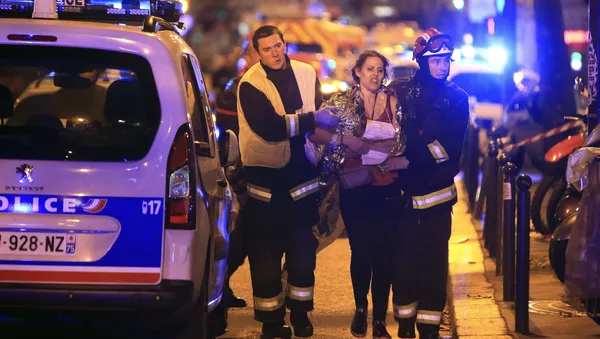Preliminary reports suggest the attackers had connections to the Islamic State, and on Saturday French President Francois Hollande called the attacks "an act of war" carried out by the Islamic State.
As a result, Stratfor's analysts believe that France will undertake greater involvement in the Syria conflict, after it already began airstrikes against terrorists there at the end of September. Intervention in Syria followed France's decision in September 2014 to join the US-led coalition in carrying out airstrikes against Islamic State targets in Iraq.
The attacks will also put additional pressure on the French government to impose greater controls on immigration, remarks Stratfor.
"From a political perspective, the attacks are a reminder of France's longstanding ethnic frictions following several months in which the focus has been on neighboring Germany," writes Stratfor in its report, remarking that the arguments of anti-immigration campaigners to impose strict border controls and halt the flow of immigrants will gain additional strength.

In addition, the popularity of Marine Le Pen's right wing Front National party may rise as a result of the security concerns, as could that of former French President Nicolas Sarkozy, who also takes a tough line on immigration and national security, and is seeking the nomination of his Republicans party for France's 2017 presidential elections.
Stratfor believes that current French President Francois Hollande could suffer from a fall in popularity after anti-terror measures put in place earlier this year failed to prevent Friday's attacks. While the president saw a "brief uptick in popularity after the Charlie Hebdo attacks," this is not expected to repeat itself.






